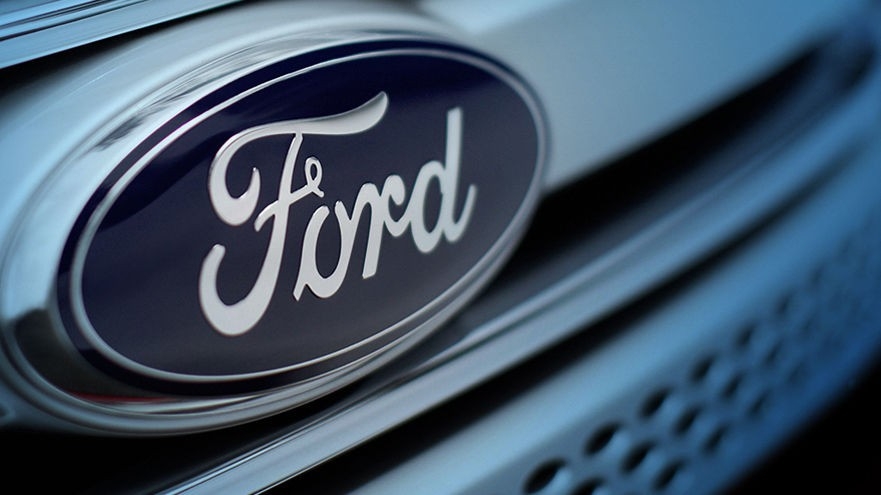“We overestimated the arrival of autonomous vehicles,” he said, adding that “its applications will be narrow, what we call geo-fenced, because the problem is so complex.” He still thinks that self-driving cars will arrive eventually, and that they will change the world. Ford has pledged to invest $1 billion in Argo AI, an artificial intelligence… Continue reading Ford CEO confession: We “overestimated” the arrival of self-driving cars – Fast Company
Tag: Ford
Ford develops software to target most effective places for public chargers
Ford Transit Custom plug-in van
More electric cars need more electric chargers—especially in and around cities.
Most charging may be done at home but to give drivers confidence to go where they want, or for city-dwellers to effectively drive electric cars, convenient public charging will be key.
Now, Ford says it has developed a new algorithm to help locate public chargers—especially fast-chargers—where drivers travel so they don't have to go out of their way to get to charger. The announcement came Tuesday as London implemented a new ultra-low emissions zone.
“In locating these additional charging points, we've attempted to take into account regular driving and stopping patterns so that topping up slots into drivers regular day-to-day activities,” said John Scott, city data solutions project lead for Ford Mobility in a statement.
READ THIS: Shell buys its first electric car charging station firm in Europe
The program is based on two trials in London. In the first, Ford's City Data Solutions Report, the company tracked 160 gas-powered Ford Transit vans over 625 miles and 15,000 vehicle-days of use. The company says it collected more than 500 million data points about where the drivers went, where they stopped and for how long. Ford says that although the vehicles were not electric, it could track them and identify ways that charging could be integrated into their routes as if they were.
The second fleet trial in London followed 20 plug-in hybrid Transit Custom vans over 50,000 miles to look at charging behaviors. In that study, Ford found that the plug-in hybrids operated in electric mode an average of 35 percent of the time, and that percentage increased the closer the vans got to London's city center. (Plug-in vehicles are exempt from the city's congestion charges as long as they have appropriate permits.)
CHECK OUT: ChargePoint commits to build charging stations for 2.5 million cars by 2025
Interestingly, the plug-in vans started their day with only a 45-percent charge on average. As the study progressed, the fleet operators were better at keeping the vehicles charged, primarily at their depots, rather than by using public charging stations.
If Ford can use the software to determine where to install chargers in the most convenient locations, it could increase the number of electric miles such fleets could drive.
Marcy Klevorn
Marcy Klevorn is chief transformation officer, Ford Motor Company, effective May 1, 2019. In this role she is accelerating the company’s transformation by helping to refine the company’s corporate governance systems, facilitate faster adoption of agile teams across the business and ensure process improvements across the enterprise. She also continues to facilitate strategic partnerships with… Continue reading Marcy Klevorn
Ford Motor Company Issues Safety Recall for Select Ford F-150, Super Duty Trucks with Engine Block Heater Cables Inspected in Accordance with a Previous Recall
DEARBORN, Mich., April 10, 2019 – Ford Motor Company is issuing a safety recall for select 2015-19 F-150 and 2017-19 Super Duty vehicles equipped with engine block heaters that had been inspected in accordance with recall 18S45. In inspected vehicles, the engine block heater cable splice connectors may have inadvertently become damaged during that service… Continue reading Ford Motor Company Issues Safety Recall for Select Ford F-150, Super Duty Trucks with Engine Block Heater Cables Inspected in Accordance with a Previous Recall
Ford Makes Leadership Changes as it Speeds Transformation
Ford Motor Company announces leadership changes as it accelerates progress on its global business redesign, product resurgence and its vision to become the world’s most trusted company designing smart vehicles for a smart world Jim Farley is appointed president, New Businesses, Technology & Strategy, and will oversee Strategy, Ford Smart Mobility, Ford Autonomous Vehicles and… Continue reading Ford Makes Leadership Changes as it Speeds Transformation
Ford CEO Tamps Down Expectations for First Autonomous Vehicles
Too much hype has built up about how soon self-driving cars will hit the road, but they will ultimately change the world, Ford Motor Co.’s chief executive officer said.
Ford may end independent India operations, eyes JV with Mahindra
April 10, 2019 Ford Motor Co is nearing a deal with Mahindra & Mahindra to form a new joint-venture company in India, a move that will likely see the U.S. automaker cease independent operations in the country, two sources with direct knowledge of the talks told Reuters. The deal would make Ford the latest automaker to pare back… Continue reading Ford may end independent India operations, eyes JV with Mahindra
Ford launches layoff program for Brazil’s Camaçari plant
FILE PHOTO: The logo is seen on the bonnet of a new Ford Aspire car during its launch in New Delhi, India, October 4, 2018. REUTERS/Anushree Fadnavis/File Photo SAO PAULO (Reuters) – The Brazilian unit of Ford Motor Company said on Tuesday it was initiating a voluntary layoff program for its plant in Camaçari, in… Continue reading Ford launches layoff program for Brazil’s Camaçari plant
Mark LaNeve
Mark LaNeve is vice president, U.S. Marketing, Sales and Service, a position he was named to in February 2015. In his role, LaNeve is responsible for all marketing, sales, service, customer care and dealer relations for the Ford and Lincoln brands. He is focused on continuing to build the Ford brand through innovative new digital… Continue reading Mark LaNeve
Ford CEO Jim Hackett: 'Ford will be ready for the recession'
Original Article
